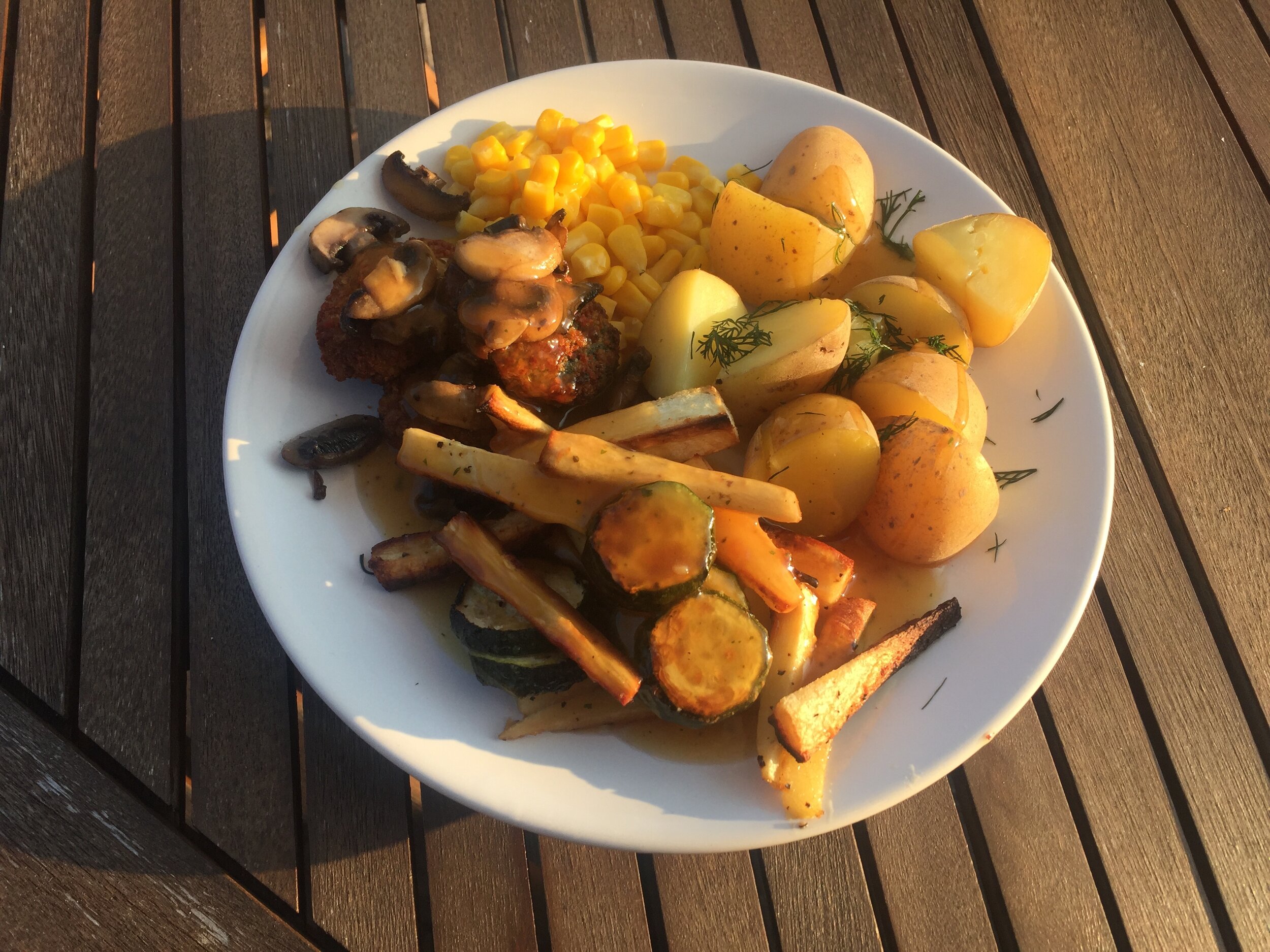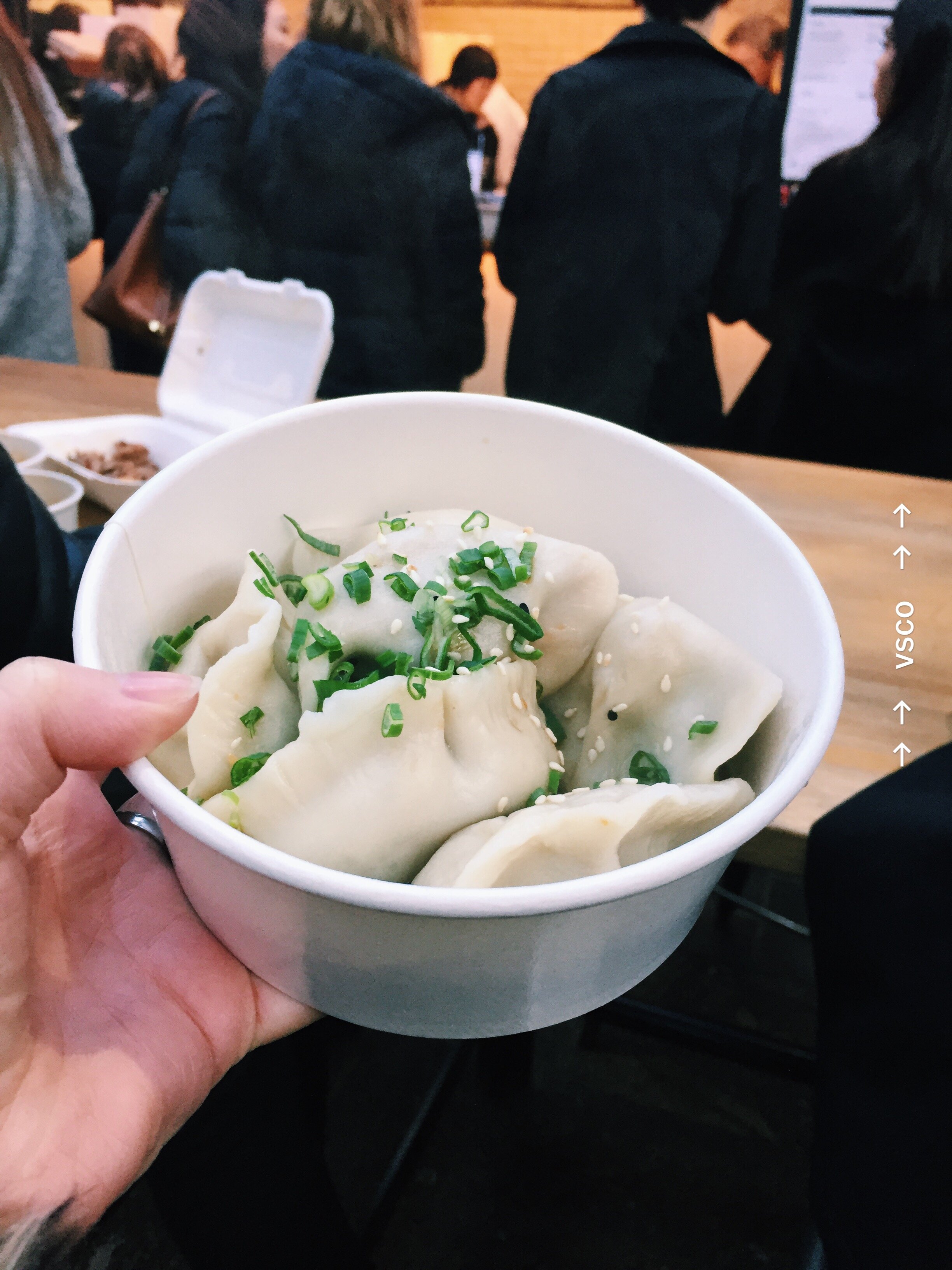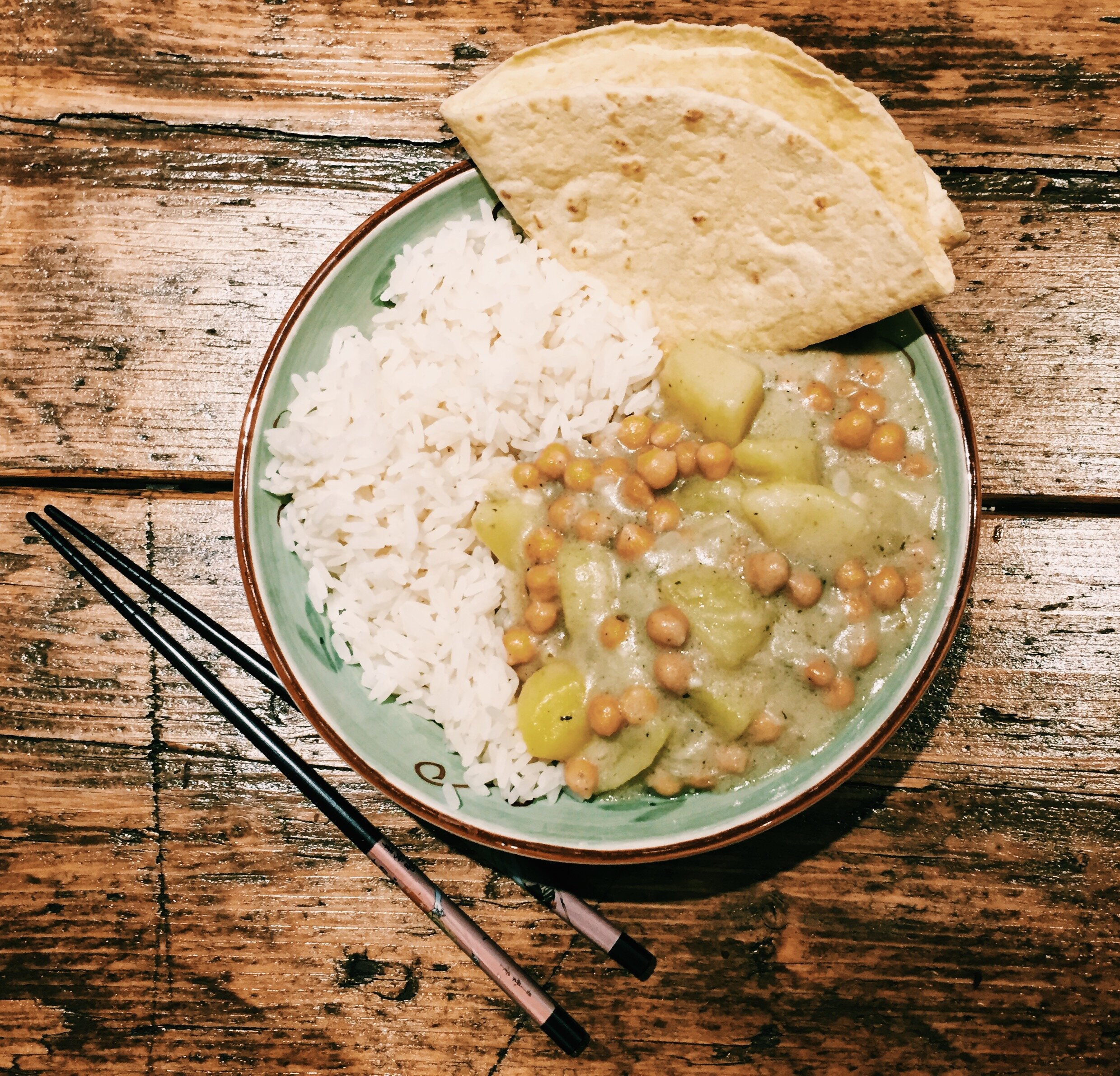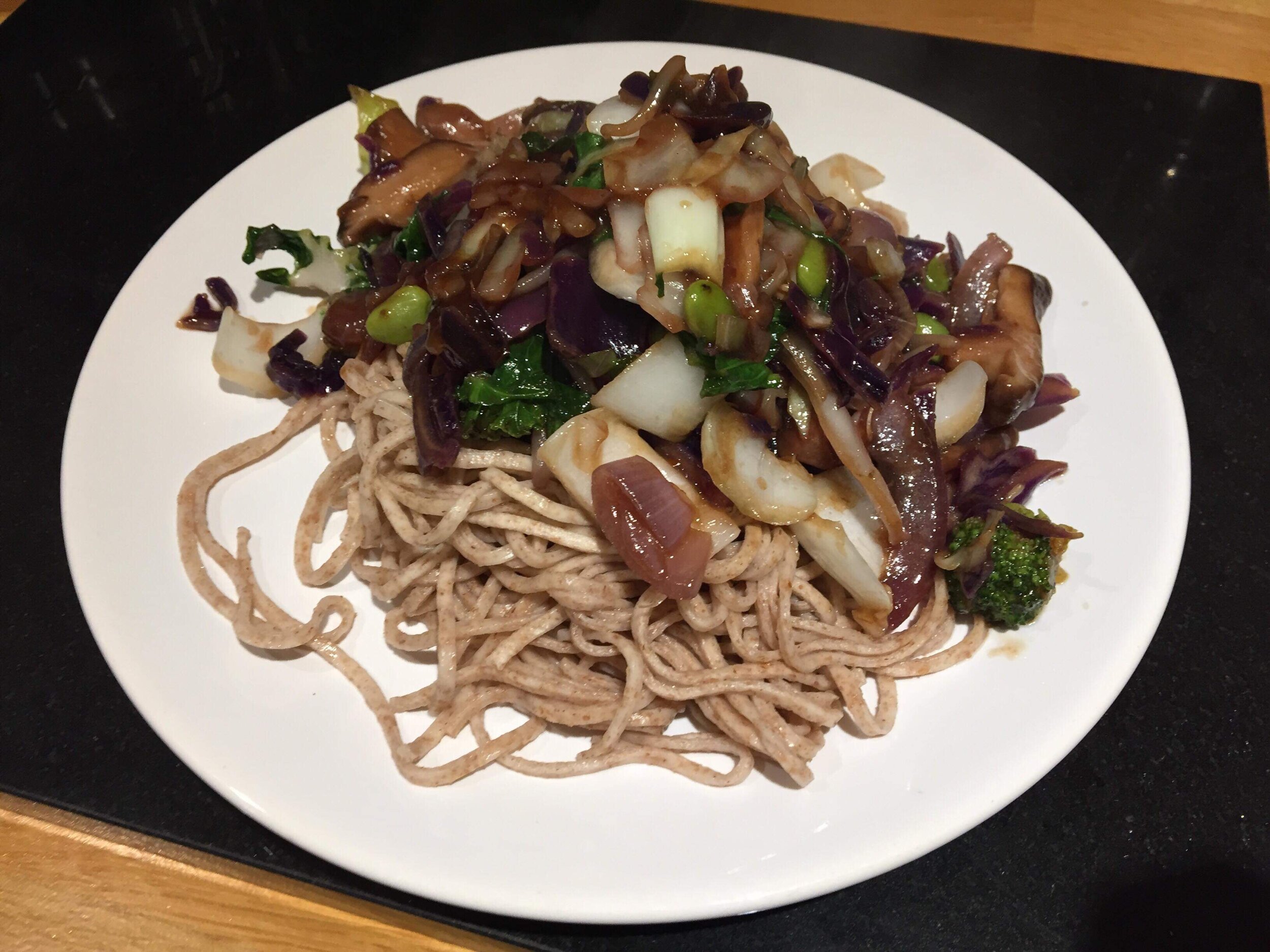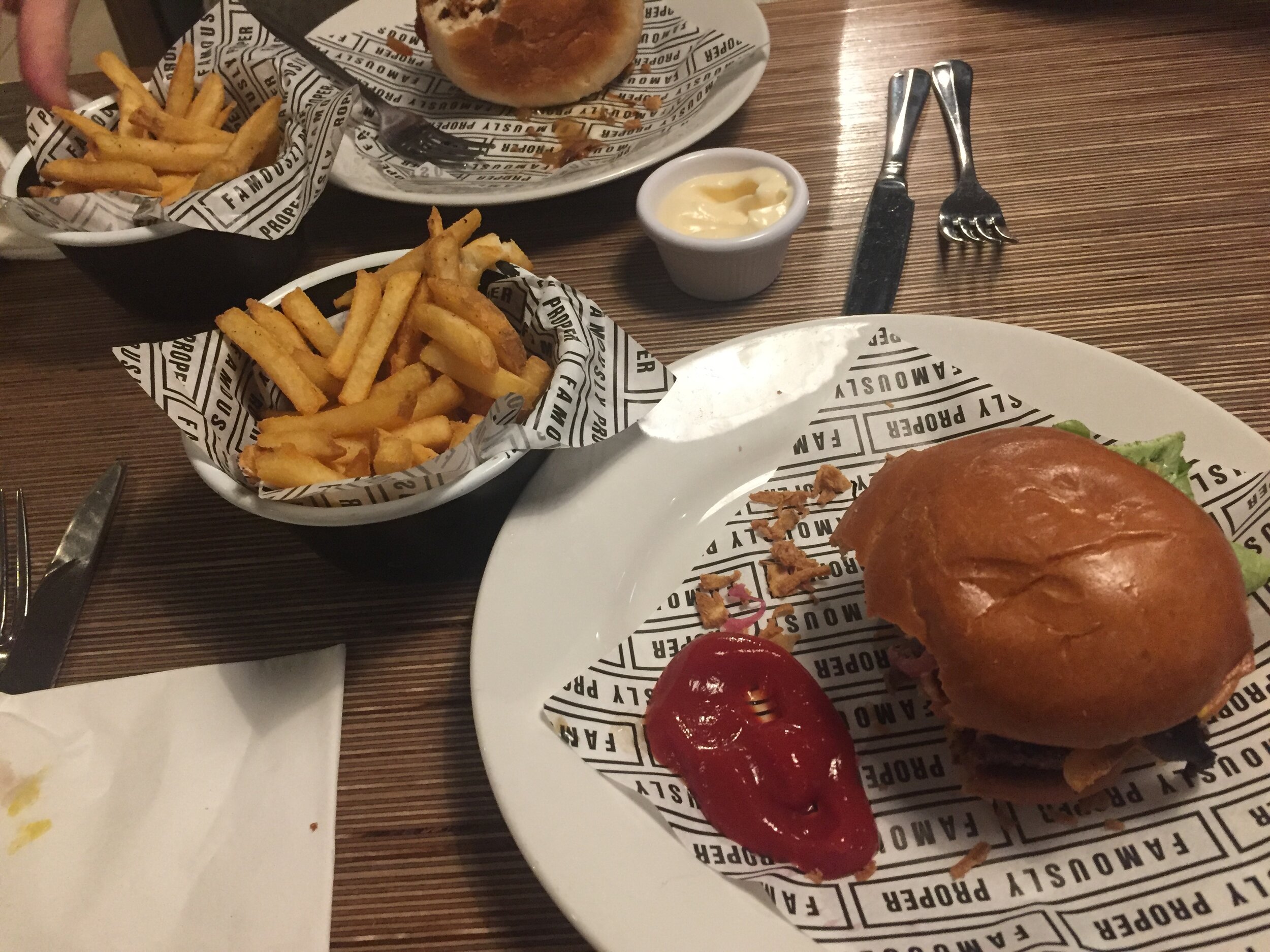Veganuary, Animals & Our Planet
As a vegetarian of 2 years, the more I thought about my ethical beliefs, the more sense it made for me to transition into Veganism. For a while, I thought about ditching animal products, and Veganuary seemed to be the most convenient way for me to achieve this. Going into the new year most of us decide on our new year resolutions and this year I was determined to become plant-based. Herein lies the strength of the Veganuary campaign; targeting the ideal time of the year for change. I'm pleased to see clever marketing tactics employed to make Veganism more accessible and enjoyable because frankly, we could all do with less meat and dairy in our diet.
Veganuary is the UK based nonprofit charity with the aim to educate and encourage people to follow a plant-based diet for the month of January and beyond. There's no need to officially sign-up. However, if you do, Veganuary offers free celebrity cookbooks and daily emails to keep you motivated. Their Instagram shares news of vegan products released on the market (as a result of the campaigns' popularity) so that, you know, you won't starve. That's a fear for a lot of people – what the hell am I going to eat? Well, what if I told you, you already consume a lot of vegan food, such as (hopefully) fruits and vegetables, beans, seeds, bread, pasta, rice, spreads such as peanut butter and some familiar snacks such as Pringles, Oreos and ironically Sainsbury's chicken flavour instant noodles. When in doubt, gin is also vegan; wine, on the other hand, you might have to check. You can find a handy list of Accidentally Vegan Products (UK) on Veganuary's blog here. Not to mention the variety of meat alternatives from amazing sustainable brands such as Beyond Meat, Impossible Foods, The Meatless Farm Co. and many more.
Meat and dairy alternatives – we have vegan cheese – are sure to help you get over the system shock if, unlike me, you're going from an omnivorous diet to a plant-based diet. Being a vegetarian first helped as my progress was gradual. Going into this I already didn't miss meat (I developed unappetizing connotations with it), thought that cow’s milk was gross, but ate a lot of eggs and loved cheese. I also was too 'busy' (I was lazy, let’s face it) to go over the ingredient lists on every packet of food I picked up at the supermarket. Confession time: I thought that Veganism was a big commitment that I was not ready for. In fact, I thought the same of the vegetarian diet and used to criticize the idea quite harshly. Here we are 2 and a half years later, and I'm writing a positive blog post about Veganuary. I'm happy to report that going vegan is not hard, contrary to my previous beliefs, and there's lots of help and support out there.
So what is Veganism? Does it differ from a plant-based diet? Is it healthy, and why does an increased amount of individuals choose to follow it; an increase of 600% in 2019 to be exact? Plant-based diet refers to just that, a diet based on plants. Veganism is an ethical belief system and a lifestyle at the heart of which is compassion for both humans and non-humans. Vegans don't consume, wear or use any products tested on or derived from animals including meat, dairy, eggs, by-products such as gelatin, tallow (e.g. used to make UK banknotes) or leather. They believe that human exploitation of animals for any purpose, be it for food or entertainment, is ethically immoral. Veganuary mostly focuses on the food aspect, so don't be scared and worry that you will have to throw out your leather jacket or go through all of your makeup to check it is cruelty-free and vegan.
That's a distinction I learned thanks to Veganuary – cruelty-free and vegan are two different things. Cruelty-free refers to a product not being tested on animals, but that doesn't necessarily mean that the product is free from animal bits, which for me is just a logical fallacy. How can something be cruelty-free if it contains animal products that came from an animal who had to be killed to obtain it? How can testing on animals be cruel but slaughtering them is ok? Now lipsticks, for example, can be labelled as cruelty-free despite having crushed insects in them. Are vegans cool with that? No. Bottom line is that vegans don't want to harm any living being – insects and bees included so no honey, honey. (P.s. a great alternative is maple syrup.) If you would like to learn more about animal agriculture and the treatment of animals, especially those residing (to put it nicely) at large factory farms, please do so with caution as the images can be quite distressing. Perhaps you'd rather follow Instagram accounts of rescued animals such as Farm Sanctuary instead. To this day, I refuse to watch slaughterhouse footage; what I've seen is enough to comprehend the situation. I can tell you that it is far from the idyllic images of grass-fed, free-range animals on beautiful and vast British farmlands.
On the topic of British farmlands, here is an excerpt from Janet Taylor, the founder of the UK based Farm Animal Sanctuary. 'Each and every market I visited there were scenes of similar horror, except they weren’t noticed by the people who worked and traded there. Sheep with gangrenous mastitis, a tumour growing from an eye, burst abscesses, feet so crippled with footrot they were barely able to stand. An old ewe dying from pneumonia. Cows with distended, dripping udders and overgrown feet, calves a few days old shaking with fear and cold showing signs of severe intestinal infection, sold to dealers to be exported to Holland and France for veal rearing.' Enough said.
So maybe you're more on board with being plant-based since all of this seems too overwhelming, and that's ok after all a plant-based diet is healthy. Right? Now, I’m about to list some health-related statements but I am not a doctor or a nutritionist. These are some of my thoughts and they can be wrong, after all, I am just another person on the internet making claims. Please do your own research, if you’re worried about your health but want to try going vegan your doctor can help. Maybe it’s not right for you? Maybe you can try and cut down only some animal products? Maybe you can cut out animals products for 3 days a week? Maybe Meatless Mondays are more your thing?
Predominantly plant-based diets are among the healthiest diets out there. Notice predominantly. There seems to be a consensus among nutritionists and doctors that a diet rich in plants is one of the most healthy diets. Our attitude to food has drastically changed. We overindulge, we consume mostly processed foods, and our intake of meat has skyrocketed. It used to be that we ate meat for special occasions; nowadays, we seem to eat it in every meal, all day, every day. Same goes for other animal products. Why include cow’s milk in crisps? It does nothing for taste or texture, and it doesn't work as a binding agent. Products such as this one can very easily be made vegan, and no one would bat an eye. Pasta used to be vegan until rich people decided to add eggs to it. I'm glad to see mostly vegan pasta now at supermarkets.
Most people don't realise how much animal products they consume until they take a moment to reassess their eating habits. Documentaries such as The Game Changers, Forks Over Knives and What the Health are a good starting point. Let's face it, you are not about to sit down to read peer-reviewed studies on nutrition, but if you did that would be great. Some shocking conclusions include, a plant-based diet helping to greatly reduce cholesterol levels, animal products along with processed foods causing CHD (Coronary Heart Disease) as well as a strong correlation between meat and cancer. Organisations such as Cancer Research UK are encouraging people to take the Veg Pledge to raise money for their honourable cause and improve one's health. Their website also states that 'processed and red meats do increase the risk of bowel cancer' – to many farmers' dismay. Cow's milk is also not good for you, contrary to the claims of many dairy advertisements; looking at you 'Got Milk?' campaign. You don't need to consume cow's milk to have strong bones. Only now have I realised that even back in Poland we had cartons of cow's milk delivered to our school, and during classes, we were told to drink it to grow healthy. Looking back, this was yet another manipulative marketing campaign aimed at impressionable kids to create a whole new generation of consumers. Plants such as broccoli contain calcium. Some plant-based milks, such as pea milk, have 50% more calcium than cow's milk. Oatly (a brand of oat milk) also contains B12 and vitamin D. Not to mention a large amount of lactose-intolerant individuals who have a hard time digesting lactose from cow's milk. Personally, I don't think we should drink milk since we are not baby cows, just saying.
Another point about the vegan diet that annoys me is people's response to it. Suddenly, everyone is a nutritionist certain of your impending death of protein deficiency. The strain of preventable diseases caused by poor diets on the NHS is extremely worrying. Oxford Martin School researchers concluded that 'A global switch to diets that rely less on meat and more on fruit and vegetables could save up to 8 million lives by 2050'. That same study estimated the environmental impacts of the world shifting to a predominantly plant-based diet which I will talk about in the next section. It is important to point out that there is a huge food inequality and it is the government’s responsibility to tackle it so that healthy food, such as vegetables, are accessible to all households. One way of achieving this would be to subsidy animal agriculture and plant farmers equally.
The myths concerning Veganism and people’s perception of it is possibly the biggest hindrance of being a vegan. I hope that by now most people realise that protein can be found in plants and you don't need to consume meat for protein. Other concerns include B12. The reality is that B12 deficiency exists in both vegans and omnivores, with both groups in need of supplements. I believe that predominantly plant-based diets (i.e. a diet high in plants with a very small amount of meat/animal products or no animal products at all) can truly help our health, environment and minimise unnecessary cruelty.
Apart from animal welfare and wanting to improve one's health, quite a few people choose to follow a vegan diet because of environmental concerns. The most comprehensive study, looking at the effects of animal agriculture on the environment, has been conducted by the researchers at Oxford University and the Swiss agricultural research institute, Agroscope. They looked at almost 40,000 farms and 1,600 processors along with packaging types and retailers. They found that plant-based diets can reduce up to 73% of food emissions. These emissions not only include greenhouse gasses but also acidifying and eutrophying emissions. These have a devastating effect on terrestrial and aquatic ecosystems. Not to mention, we would require 76% less farmland. According to Joseph Poore, 'This would take [the] pressure off the world’s tropical forests and release land back to nature.'
The aforementioned study from the Oxford Martin Programme on the Future of Food was the first study to estimate the environmental and health impacts of a plant-based diet. The study projects that by 2050 'food-related greenhouse gas emissions could account for half of the emissions the world can afford if global warming is to be limited to less than 2°C.' They also calculated the impact that diets can have on said emissions. Following global dietary guidelines equate to food-related emissions being cut by 29%, vegetarian diet by 63%, and finally vegan diet by 70%.
Animal agriculture is also responsible for 91% of the Amazon forest deforestation – according to the Rain Forest Foundation. Their website states the dangers of palm oil and soy agriculture in addition to other factors, so they are not biased towards Veganism; 'More and more studies suggest one of the best things you can do for the environment and the rainforest is to reduce your meat and dairy consumption'. The WWF (World Wide Fund for Nature) also has a thing to say about our unsustainable food system – 'Demand for food and agriculture poses one of the biggest dangers to the planet. It is the leading cause of deforestation, destroying countless habitats and threatening wildlife to the point of extinction.' The negative impact of animal agriculture, and the way our food system is currently structured, provide undeniable evidence prodding us to think about the consequences of our direct and indirect actions. This includes the food we consume, what we wear, and where our household items come from. For more ground-breaking statistics visit The Vegan Society website which quotes the aforementioned studies and more.
The humanitarian aspect of Veganism is lesser talked about but I think that the positive impacts are there. According to The Vegan Society, '82% of starving children live in countries where food is fed to animals who are then eaten by Western countries.' If we moved to a more sustainable food system, we could feed everyone on the planet and still reduce our farmlands, returning the land to nature and taking pressure off indigenous communities and wildlife. We would also prevent wildlife from being pushed closer towards human settlements avoiding zoonotic diseases; diseases that can prove deadly to humans and put an enormous strain on our economy as we have seen with Covid-19. According to global experts in biodiversity “As many as 1.7 million unidentified viruses of the type known to infect people are believed to still exist in mammals [cows, pigs, bats] and water birds. Any one of these could be the next ‘disease X’ – potentially even more disruptive and lethal than Covid-19”. Read the full article here. Not to mention the effects animal agriculture has on communities living close to factory farms. Duplin County in North Carolina USA is a great example of this, and I recommend reading into the stories of the locals and how the nearby piggery has affected them and their health.
We also need to take into account, and talk about, the well-being of slaughterhouse workers. Many have reported drug and alcohol problems, PTSD and other mental health issues caused by their work. Some slaughterhouse workers in the USA even regard themselves as 'modern-day slaves' as the animal agriculture companies have little regard for them. So not only does our money go to pay for an animal’s life to be taken away, but also to potentially destroy the mental well-being of another human. The slaughterhouse is a dangerous place to work for humans. Most people don't willingly strive for a job at a slaughterhouse; they are often forced to do these jobs out of necessity. Moving to a plant-dominant food system would mean that these workers could perform jobs that don't have such a negative effect on their well-being. I recommend reading Confessions of a slaughterhouse worker, but please bear in mind that the story can be very disturbing to some.
And so, 5-months after Veganuary has ended, I'm still vegan. I started this journey because I wanted to become plant-based; however, learning more about Veganism and animal agriculture has transformed my mindset on food, life and the far-reaching repercussions of my daily actions. For me, the unnecessary cruelty and the devastating environmental impacts of animal agriculture are simply not worth it. I can be just as healthy, if not healthier when compared to the standard Western diet, and have a hugely positive effect simply by changing my diet. Why are we so protective of some 4-5 ingredients like eggs, cow’s milk and meat? There are so many more flavours out there. It's baffling that people call a vegan diet restricting when I have been introduced to so many different types of food. I no longer think of dinner as potatoes, meat and a side of veg. My meals have become so much healthier and more exciting. So far I eat a different meal every day and yet for some reason people assume that this diet is boring. I put it down to the lessons we received as children, habit and lack of knowledge on the topic. I hope that the meals I cook – and I'm not a chef, just a regular working girl – change this false perception in the people around me.
I believe that we should strive to cut down on animal products. Veganuary is a great starting point after which you can decide what you want to do with your diet; whether it is to maintain a vegan diet or cut down. There are other great campaigns out there, such as Meatless Mondays (championed by the longest living Beatle – Sir Paul McCartney) and Challenge 22, so there are plenty of opportunities to encourage you to change your lifestyle for a healthier and more sustainable one.
So perhaps you've read this article, maybe explored some of the links in here or conducted your research and are on the fence/decided to join the vegan rebels – what happens if you slip up? Nothing. No one expects you to be perfect. We all make mistakes, especially when you're first starting. So you had honey, so you accidentally ate a bun that contained egg or cow’s milk – whatever. Tomorrow is another day, and you're learning. Over time you'll realise that same as with animal meat you should limit your consumption of mock-meats like the delicious Beyond Burger. You'll realise that there are healthy vegans and unhealthy vegans who survive on vegan junk food and processed food. I mean if you're going to do that at least you're only hurting yourself and not a bunch of adorable animals, but preferably you'll keep healthy. If you don't succeed at first, for whatever reason, don't worry. I tried to go vegan during my undergrad, but it just didn't work out then. I just had a bad fluke and shortly after I went vegetarian and finally vegan. It is a journey, and everyone will do this their way. Don't feel pressured, experiment with food and find what you enjoy. I have a personal vendetta against soy milk, but some people swear by it. Fun fact, cow’s milk is the one containing estrogen, not soy milk which contains a different type of estrogen. I'm team oat milk. My mum claims there is a difference between sweetened and unsweetened oat milk – my tastebuds are confused. I can't seem to spot the difference.
For more inspiration and information, I'd recommend Earthling Ed as the go-to modern age philosopher on the ethics of Veganism, Avant-garde Vegan by Gaz Oakley for amazing recipes and Pick Up Limes for some good feels. Non-profit charities such as The Vegan Society are a great source of statistics and further information. I also enjoy watching Mic the Vegan for a dose of science and Goodful for some vegan culinary MacGyver adventures – there's some crazy food science involved. I am yet to read any books on Veganism, but on my reading list are How Not to Die by Dr Michael Greger and Gene Stone; The China Study by Dr T. Colin Campbell and Thomas M. Campbell; and Animalkind: Remarkable Discoveries About Animals and Revolutionary New Ways to Show Them Compassion by Gene Stone and Ingrid Newkirk. Some of my favourite fiction films to watch when deciding on your stance on animal rights are Okja by the Oscar-winning Bong Joon-ho; Princess Mononoke by Hayao Miyazaki of Studio Ghibli; and Babe starring long time vegan James Cromwell. Documentary wise I recommend Earthlings narrated by multi-award-winning Joaquin Phoenix, Dominion by Chris Delforce and Cowspiracy: The Sustainability Secret by Kip Andersen and Keegan Kuhn. If you would like to read about where I stand on animal rights and environmentalism, please feel free to check out my FAQ section and my Ethical Statement. I deliberately didn't focus on animal rights and ethics in this article because it deserves its’ own. I'm encouraging educating yourself and researching this topic for yourself so that you can draw your conclusions.
I hope you enjoy exploring plant-based foods and good luck on your journey whether you’re omnivorous, pescetarian, flexitarian, vegetarian or vegan!









